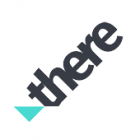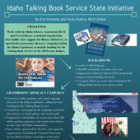
Grand Challenges - discovering the impact of thousands of bold experiments
Within the Bill and Melinda Gates Foundation, the Grand Challenges program strives to find solutions to prevalent global health issues by funding smaller exploratory research projects. However, due to a lack of information provided by grantees, it is difficult for the foundation to measure their impact. Our solution brings the vastness of the web into an organized, searchable portal that will allow users find and filter news articles related specifically to projects funded by the foundation. With stories and evidence of the value of these smaller grants, the Grand Challenges program will continue to receive funding and solve important global health issues.









